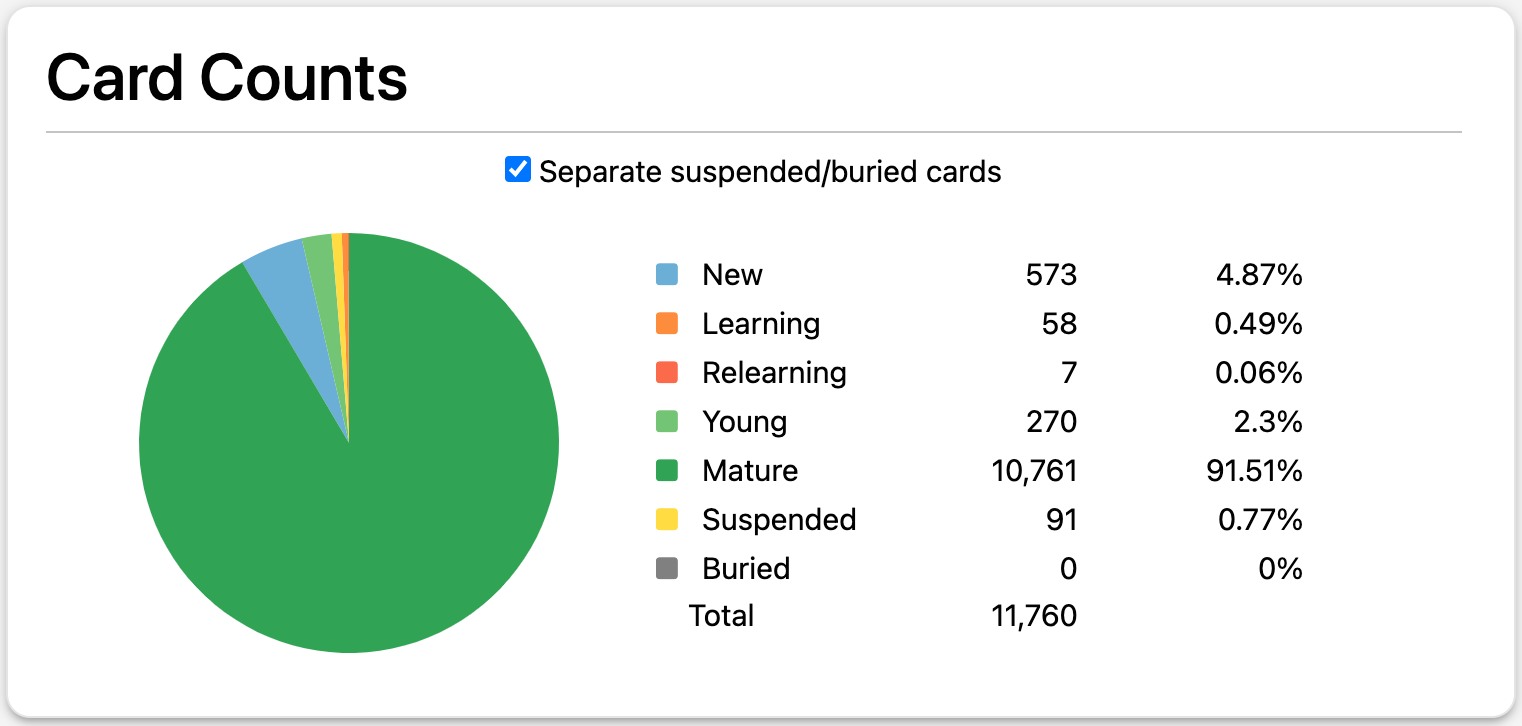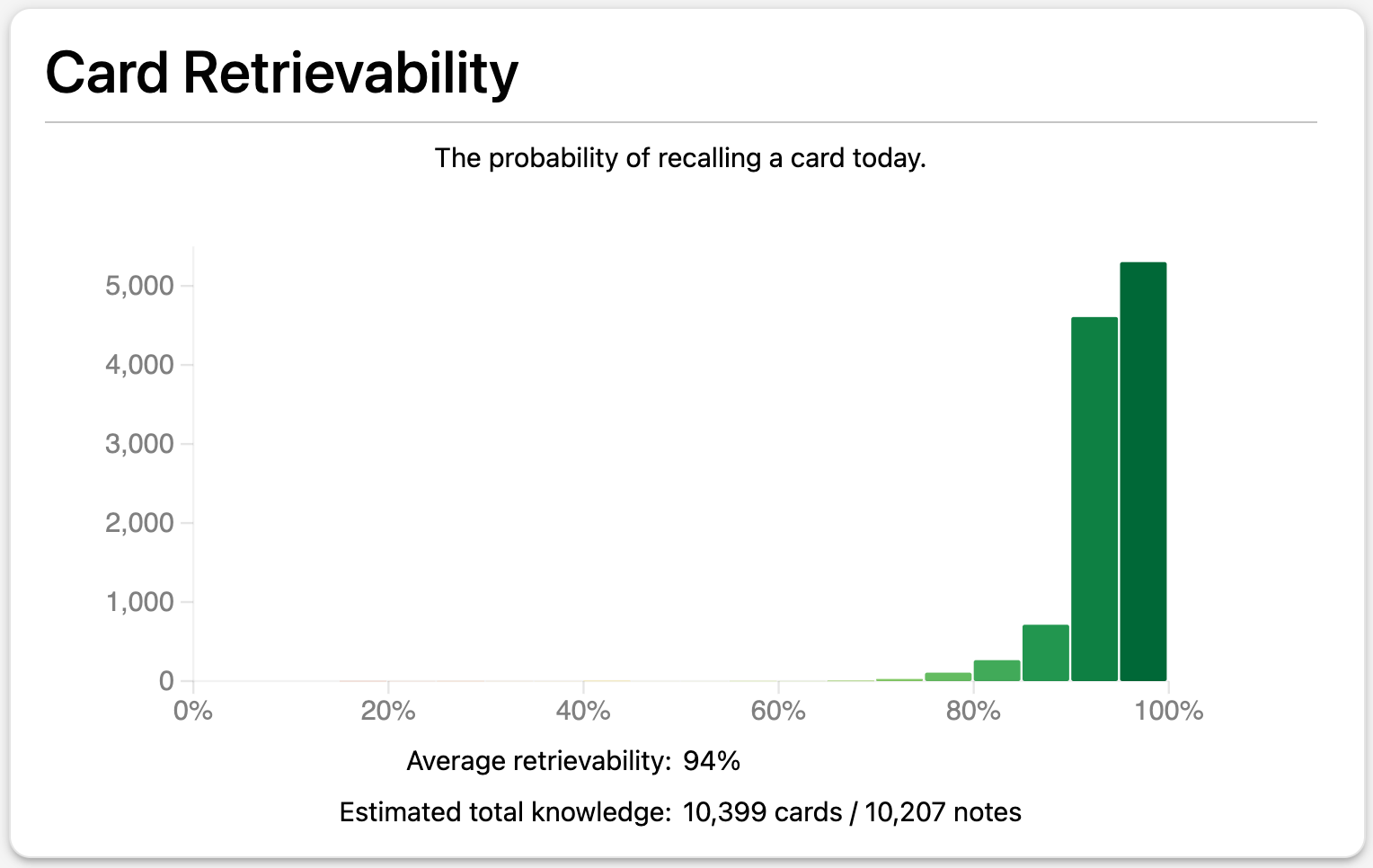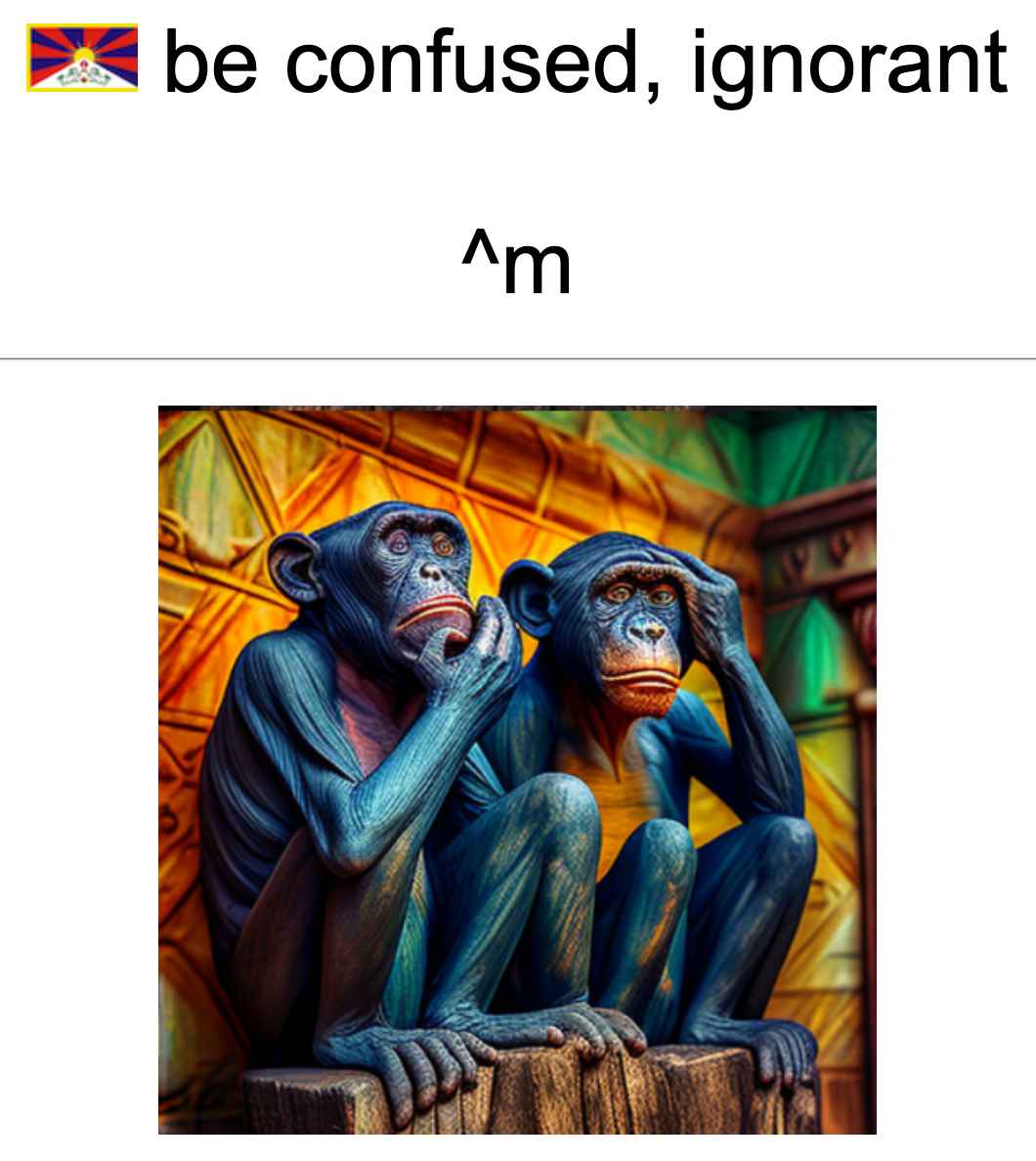The Tedium and Trouble with Flashcards for Language Learners
The pitfalls of spaced repetition: brittleness, synonyms, and shaky certainty
Published on
Part of the series: Flashcard Pros & Cons
Now that I have sung the praises of flashcards, let me expatiate on their shortcomings. This is not some dialectical sleight of hand, but the reflection of a genuine tension I experience daily. Pulling off a ten-card streak in Anki can induce an exhilarating conviction that Spaced Repetition Software (SRS) is the greatest boon ever. Yet, encountering just a few failed old cards is enough to trigger a wave of despair. The contrast between these peaks of confidence and troughs of frustration is stark and persistent.
When Statistics Clash with Lived Experience
It is consistently painful and frustrating to fail recalling a card reviewed countless times. This feeling isn't just annoyance; it's a distinct discomfort with larger implications. That the process of studying flashcards inherently involves such harrowing discomfitures casts a shadow of doubt on the method's overall validity. Am I genuinely increasing my recall ability across thousands of words if, on any given day, a significant portion seems to hover just beyond my ken, in a frustrating limbo of forgetfulness? Statistics, automatically compiled by Anki, theoretically offer reassurance. However, I'm weary of placing full trust in those optimistic charts and high percentages. Perhaps because these abstract metrics feel disconnected from the visceral experience of recall failure...

Active Recall vs. Passive Recognition
Conversely, a curious phenomenon often occurs: I might struggle to produce the Tibetan, Russian, or Sanskrit word for a concept during a review session, only to recognize that very word effortlessly when encountering it in situ while reading later the same day. This discrepancy highlights the difference between active recall (prompted retrieval) and passive recognition (context-aided understanding). It stems partly from the deliberate, increased difficulty of testing from my native language to the target language (L1 → L2). I frequently wonder if my study routine would feel dramatically easier—perhaps deceptively so—if oriented in the opposite direction (L2 → L1). The concern, however, is that excessive ease might prove detrimental to robust long-term retention. Furthermore, relying heavily on images as cues, which simplifies L2 → L1 recall, would become problematic, as they give away the meaning at first glance.
The Wish for a Solid Inventory
Even though daily study sessions provide ample evidence that I do remember most words encountered, a fundamental uncertainty persists: I don't truly know which words I know. Reciting a comprehensive catalogue of the vocabulary accumulated over years is an impossible task. Does this inherent limitation matter? Perhaps not. Recognizing words reliably in context might be the more practical skill, rendering the feat of listing my entire studied lexicon largely futile. Yet, the desire for more tangible evidence of my vocabulary grasp across a wide array of languages remains. Being able to mentally survey those thousands of painstakingly hoarded words would undoubtedly soothe the recurring pangs of uncertainty about the true extent of my knowledge. It’s a longing for a sense of solid inventory, instead of probabilistic success rates.

Synonyms: One Prompt, Many Answers
Synonyms present another significant challenge for my typical flashcard template. If prompted with "tristesse" (French), aiming for an English equivalent, any number of valid answers exist: "sadness," "sorrow," "melancholy," "grief," and so forth, as illustrated by the extensive list in the Oxford Thesaurus of English:
There will be great sadness at this news: unhappiness, sorrow, dejection, regret, depression, misery, cheerlessness, downheartedness, despondency, despair, desolation, wretchedness, glumness, gloom, gloominess, dolefulness, melancholy, low spirits, mournfulness, woe, broken-heartedness, heartache, grief; informal down; rare disconsolateness, disconsolation, dismalness.
My current workaround involves using distinct images to differentiate cards representing synonyms, essentially creating separate items for closely related concepts. I also sometimes employ subtle phonetic hints on the prompt side. However, this latter strategy feels like counterproductive cheating, as it diminishes the recall effort required, potentially weakening the learning stimulus. The image solution helps distinguish cards, but doesn’t inherently teach the subtle nuances differentiating the synonyms themselves.


From Scattershot to Strategy
Furthermore, learning words in this atomic, scattershot fashion often feels like a missed opportunity for deeper integration. Sure, picking up vocabulary organically while reading a book provides context and the satisfying prospect that rereading the text would yield near-complete comprehension. But there must exist a more effective sorting order, one that facilitates easier and more spontaneous retention. What if, instead of treating vocabulary as a discrete set of randomly dispersed points, we processed it in meaningful, structured sets?
An obvious organizational principle is phonetics. Learning words grouped by sound could offer a double benefit. Firstly, it would inherently juxtapose homonyms (or near-homonyms), forcing clarification and reducing the chance of confusing their meanings. Secondly, it might mitigate the synonym problem by embedding each synonym in a widely different context.
Upon discovering a new foreign word, there's a natural, intuitive tendency to compare it to similarly-sounding words in other languages one knows. This spontaneous cross-linguistic pegging offers a powerful mnemonic scaffold, as shown by memory research. I realized I was relying on this subliminally during flashcard reviews. It then dawned on me that one ought to leverage these impromptu associations more systematically, moving from unconscious comparison to deliberate strategy.
These reflections may sound somewhat theoretical at this stage. However, they form the basis of a revised approach I've begun to explore. In a subsequent discussion, I intend to explain in greater detail how I set about learning a significant portion of Sanskrit vocabulary by applying a method grounded in these two insights: structured phonetic grouping and systematic reliance on the keyword method.




